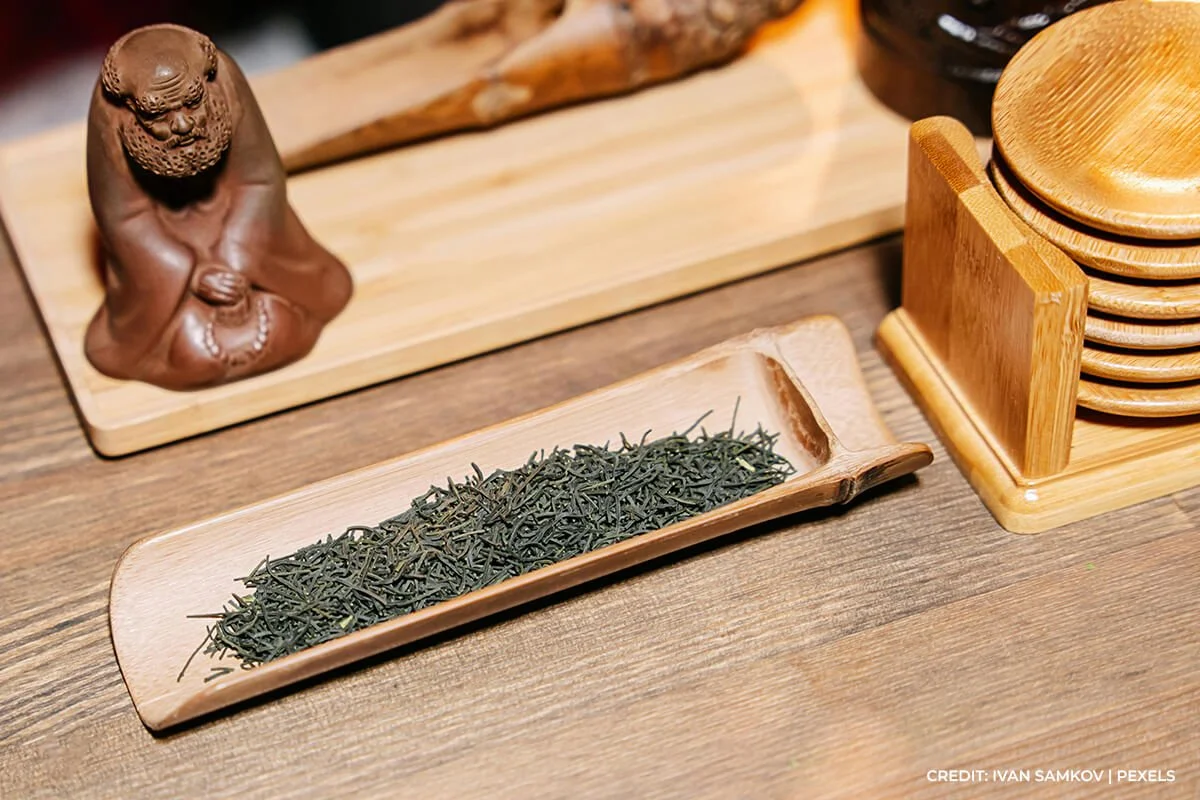Chinese Herbal Medicine for Proper Sleep
These days, sleep deprivation has become a common issue, affecting millions of people worldwide. While modern medicine offers various solutions, Traditional Chinese Medicine (TCM) has a rich history of addressing sleep disorders using natural remedies. By understanding the root causes of sleep disturbances and employing carefully selected herbs, TCM can provide effective and sustainable relief.
The TCM Perspective on Sleep
In Traditional Chinese Medicine (TCM), sleep is seen as a vital process for the body to replenish its energy, known as Qi. A balanced flow of Qi is essential for optimal health, including restful sleep.
Key TCM Concepts Related to Sleep
Yin and Yang: These two opposing forces govern all aspects of life, including sleep. A balanced state of Yin (rest, coolness) and Yang (activity, warmth) is crucial for healthy sleep patterns.
Organ Clock: TCM recognizes a 24-hour cycle, with each two-hour period associated with a specific organ. Disruptions in the energy flow of these organs can lead to sleep disturbances.
Blood and Qi: Adequate blood and Qi are necessary for nourishing the body and mind. Imbalances in these can manifest as insomnia, restlessness, or difficulty falling asleep.
Common TCM Diagnoses for Sleep Disorders
Heart-Kidney Yin Deficiency: This imbalance is characterized by insomnia, anxiety, palpitations, and night sweats.
Liver-Spleen Qi Stagnation: This imbalance can lead to restlessness, irritability, and difficulty falling asleep.
Kidney Yang Deficiency: This imbalance can cause frequent nighttime urination, lower back pain, and fatigue, which can disrupt sleep.
The Impact of Sleep Deprivation
Chronic sleep deprivation can have far-reaching consequences, affecting both physical and mental health. It can weaken the immune system, increase the risk of chronic diseases like heart disease and diabetes, and impair cognitive function. Furthermore, studies have shown a link between sleep deprivation and fertility issues.
According to Carolinas Fertility Institute, “Research has found that women getting less than seven hours of sleep are 15% less likely to get pregnant than women who got seven to eight hours. On the other hand, women undergoing a treatment like IVF who got seven to eight hours of sleep were 25% more likely to get pregnant than women who got nine or more.”
The Role of Chinese Herbal Medicine in Promoting Restful Sleep
TCM provides a holistic approach to addressing sleep disorders. By targeting the underlying imbalances in the body's energy flow, known as Qi, Chinese herbal medicine can help restore harmony and promote restful sleep.
Improved Sleep Quality
Herbs like Suan Zao Ren Tang and Bai Zi Ren Tang are renowned for their calming and sedative properties. They work to nourish the heart and spleen, two key organs associated with sleep, leading to deeper, more restorative sleep.
Reduced Anxiety and Stress
Certain herbs, such as Bai Shao and Chuan Xiong, possess anxiolytic and sedative effects. They help to alleviate anxiety and stress, which are common culprits behind sleep disturbances. By calming the mind, these herbs create a more conducive environment for restful sleep.
Boosted Immune Function
Adequate sleep is crucial for a robust immune system. Chinese herbal medicine can support immune function by addressing underlying imbalances and promoting overall well-being. A well-rested body is better equipped to fight off infections and diseases.
Enhanced Fertility
Sleep deprivation can negatively impact fertility in both men and women. By addressing hormonal imbalances, improving blood circulation, and promoting overall health, Chinese herbal medicine can enhance fertility. Adequate sleep is essential for the production of healthy reproductive hormones and the optimal functioning of the reproductive system.
The Advantages of Chinese Herbal Medicine for Sleep
Chinese herbal medicine offers several advantages for promoting healthy sleep:
Natural and Holistic Approach
TCM takes a holistic approach to health, focusing on addressing the root cause of sleep disturbances rather than simply masking symptoms. This ensures long-lasting benefits and minimizes the risk of side effects associated with synthetic medications.
Minimal Side Effects
When used appropriately and under the guidance of a qualified TCM practitioner, Chinese herbs have minimal side effects and are generally well-tolerated. This makes them a safe and effective option for many individuals, particularly those who prefer natural remedies.
Personalized Treatment
TCM practitioners can tailor herbal formulas to the specific needs of each individual. By considering factors such as your symptoms, lifestyle, and overall health, they can create a personalized treatment plan that maximizes effectiveness and minimizes side effects.
Long-Term Benefits
Regular use of Chinese herbal medicine can lead to significant improvements in sleep quality and overall well-being. By addressing the underlying imbalances, these herbs can promote long-term health and vitality. This holistic approach can help you achieve restful sleep and a higher quality of life.
Chinese Herbs in Promoting Sleep
Chinese herbal medicine offers a natural and effective approach to addressing sleep disorders. By targeting the underlying imbalances, these herbs can help restore harmony and promote restful sleep. Some of the key herbs used for sleep include:
Sour Jujube Seed (Suan Zao Ren)
This herb is renowned for its calming and sedative properties. It nourishes the heart and spleen, two key organs associated with sleep. Suan Zao Ren can help alleviate insomnia, anxiety, and palpitations.
Radix Polygalae (Yuan Zhi)
This herb is known for its ability to nourish the heart and calm the spirit. It is often used to treat insomnia, anxiety, and palpitations. Yuan Zhi can help improve sleep quality and reduce restlessness.
Magnolia officinalis (Hou Po)
This herb is used to soothe the mind and relieve anxiety. It can help alleviate insomnia caused by emotional stress and restlessness.
Anemarrhena (Zhi Mu)
This herb is often used to clear heat and nourish Yin, which can be beneficial for those with insomnia caused by excessive heat.
White Mulberry Root Bark (Bai Zi Ren)
This herb is often used to calm the mind and promote restful sleep. It is particularly effective for individuals who experience insomnia due to anxiety or stress.
Spina Date Seed (Zao Jiao Ci)
This herb is used to tonify the liver and kidney, two organs that play a significant role in regulating sleep patterns. It is often used to treat insomnia, dizziness, and tinnitus.
Choosing the Right Herbal Formula
The Importance of Personalized Treatment
While Chinese herbal medicine offers a powerful approach to promoting sleep, it's crucial to consult with a qualified TCM practitioner to determine the most suitable herbal formula for your individual needs.
Tailored Herbal Formulas
TCM practitioners are skilled in diagnosing underlying imbalances and tailoring herbal formulas to address specific concerns. By considering factors such as your symptoms, lifestyle, and overall health, they can create a personalized treatment plan.
Addressing the Root Cause
Herbal formulas often combine several herbs to target the root cause of sleep disturbances. For instance, a person experiencing insomnia due to anxiety may benefit from a formula containing herbs like Bai Zi Ren and Yuan Zhi. These herbs work synergistically to calm the mind, alleviate anxiety, and promote relaxation, leading to improved sleep quality.
By working closely with a TCM practitioner, you can harness the power of Chinese herbal medicine to achieve restful sleep and optimal well-being. We caution all readers to consult a qualified Chinese medicine practitioner before taking Chinese herbal medicine. Like all medicines, Chinese herbs are potent and should be taken only under supervision.
Additional Tips for Better Sleep
In addition to the benefits of Chinese herbal medicine, incorporating these lifestyle changes can significantly enhance your sleep quality:
Set a Regular Sleep Schedule
If you go to bed and wake up at the same time every day, even on weekends, it can help regulate your body's internal clock. This consistency signals to your body when it's time to wind down and when it's time to wake up, promoting a more regular sleep-wake cycle.
Create a Relaxing Bedtime Routine
Having a bedtime routine to calm you down can signal to your body that it's time to relax and prepare for sleep. Activities like taking a warm bath, reading a book, or practicing relaxation techniques like meditation or deep breathing can help reduce stress and promote relaxation.
Optimize Your Sleep Environment
Your bedroom should be a serene oasis conducive to sleep. Ensure it's dark, quiet, and cool. Invest in comfortable bedding, such as a high-quality mattress and pillows.
Limit Screen Time Before Bed
The blue light emitted by electronic devices can interfere with your body's natural sleep-wake cycle. Avoid using screens for at least an hour before bed.
Avoid Caffeine and Alcohol
Both caffeine and alcohol can disrupt sleep patterns. Limit caffeine intake, especially in the afternoon and evening. While it’s true that alcohol can make you feel drowsy at first, it can disrupt sleep as the night progresses.
Seek Professional Guidance from Total Wellness Centre
While Chinese herbal medicine can be a powerful tool for promoting sleep, consult with a qualified TCM practitioner in Toronto before starting any new herbal regimen. They can assess your individual needs and recommend the most appropriate herbs and dosage.
If you're struggling with sleep and are interested in exploring the benefits of Chinese herbal medicine, consider consulting with a TCM practitioner at Total Wellness Centre. We can provide personalized guidance and support to help you achieve restful sleep and optimal health.
Call Total Wellness Centre today at 416-532-9094 to schedule a consultation.

